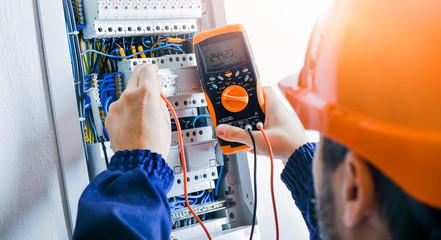Electricity has become an indispensable part of modern life. From lighting our homes to powering essential appliances and complex machinery, reliable electrical service forms the backbone of daily living and business operations. Understanding its importance—and the different aspects that make it safe and efficient—helps homeowners, property managers, and organizations make informed decisions about their power needs.

The Role of Electrical Service in Everyday Life
Electrical service refers to the systems, infrastructure, and professional expertise that deliver power safely from the grid into homes, offices, and industrial spaces. Without dependable service, essential activities would be disrupted, affecting comfort, productivity, and safety.
Beyond simple convenience, electricity drives communication systems, heating and cooling, security devices, and medical equipment. Its reliability is therefore critical, not only for day-to-day living but also for emergencies and public safety.
Key Components of an Electrical System
A typical electrical service includes several major elements that work together to distribute power safely:
- Service Panel or Breaker Box – The hub that routes electricity to various circuits within a building and protects them with fuses or breakers.
- Wiring and Conduits – The network of cables that carry electricity to outlets, lights, and equipment.
- Outlets and Switches – The access points where users plug in or control electrical devices.
- Grounding Systems – Safety measures that direct excess current safely into the earth to prevent shocks and fires.
Proper installation and maintenance of these components are essential for safety and efficiency.
Safety as the Top Priority
Electricity is powerful but can be dangerous when mishandled. Faulty wiring, overloaded circuits, or damaged outlets increase the risk of fires, shocks, or power failures. This is why safety standards and codes exist to guide how electrical systems are designed and installed.
Routine inspections help identify potential hazards before they become problems. Checking for frayed cords, warm outlets, or frequent breaker trips can signal issues that need immediate attention. Using quality materials and following established guidelines adds an extra layer of protection.
Residential Electrical Services
In homes, electrical service covers everything from initial wiring during construction to upgrades, repairs, and new installations. Examples include:
- Adding or updating outlets and lighting fixtures.
- Installing ceiling fans or energy-efficient lighting.
- Upgrading service panels to handle increased loads from new appliances or home additions.
- Setting up backup power solutions to prepare for outages.
As households adopt more electronics and high-demand appliances, ensuring the electrical system can safely handle the load becomes increasingly important.
Commercial and Industrial Electrical Services
Businesses and industrial facilities often have more complex needs. They may require specialized wiring for heavy machinery, high-capacity circuits, or integrated power management systems. Reliable electrical service helps avoid downtime, protect expensive equipment, and meet regulatory standards.
Examples of commercial or industrial electrical services include:
- Installing three-phase power systems for large motors.
- Setting up energy-efficient lighting systems in warehouses or offices.
- Integrating safety alarms, data cabling, and emergency backup systems.
- Conducting regular maintenance to prevent disruptions to production or customer service.
The Importance of Regular Maintenance
Just like any other infrastructure, electrical systems benefit from preventive maintenance. Periodic checks ensure connections remain secure, breakers function properly, and wiring stays intact. Maintenance can include:
- Inspecting panels and breakers for wear.
- Testing emergency lighting and backup power systems.
- Verifying grounding and surge protection.
- Updating outdated wiring or components to meet current standards.
Proactive maintenance not only prevents unexpected failures but can also extend the lifespan of equipment and reduce energy costs.
Energy Efficiency and Modern Upgrades
Today’s electrical services often incorporate energy-saving solutions. Upgrading to energy-efficient lighting, installing programmable controls, or using smart devices to monitor power consumption can lower utility costs and reduce environmental impact.
In addition, renewable energy options, like integrating solar panels or battery storage, require specialized electrical work to safely tie into existing systems. As technology evolves, electrical service providers adapt to ensure new solutions are properly installed and maintained.
Emergency Electrical Services
Power outages or sudden electrical failures can be disruptive and even dangerous. Emergency electrical services provide rapid response to restore power, repair damaged systems, and ensure safety. These services are particularly vital in settings where outages can jeopardize health, security, or business continuity.
Examples of emergency services include:
- Restoring power after storms or equipment failures.
- Addressing hazardous wiring conditions immediately.
- Repairing malfunctioning panels or critical systems to resume normal operations.
Having a trusted plan in place for emergencies can minimize downtime and protect property and occupants.
Choosing the Right Electrical Service Provider
Selecting the right professional is key to ensuring safe, high-quality work. When evaluating providers, consider factors such as:
- Experience and Training – Technicians should be qualified to handle the specific type of project.
- Compliance with Codes – Work should meet all relevant safety and building standards.
- Transparency and Communication – Clear estimates, timelines, and explanations build trust.
- Availability for Emergencies – Providers who offer rapid response can be invaluable during outages or urgent repairs.
Taking the time to vet service providers helps ensure long-term reliability and safety.
Preparing for the Future
As homes and businesses adopt more technology, demand for electrical systems will continue to grow. Electric vehicles, smart appliances, and renewable energy integration all require modern, flexible infrastructure. Forward-thinking upgrades—like larger service panels, dedicated circuits, or advanced monitoring—can prepare a property for future needs.
Investing in up-to-date electrical service not only improves safety and efficiency but can also enhance property value and reduce maintenance costs over time.
Reliable electrical service is the silent force that powers our modern lives. It lights our homes, drives our businesses, and keeps essential systems running smoothly. By understanding its components, prioritizing safety, and planning for the future, homeowners and organizations can ensure their power systems remain efficient, dependable, and ready to meet evolving demands.
Electrical service is not just about keeping the lights on; it’s about creating a safe, functional, and adaptable environment where people can live, work, and thrive.